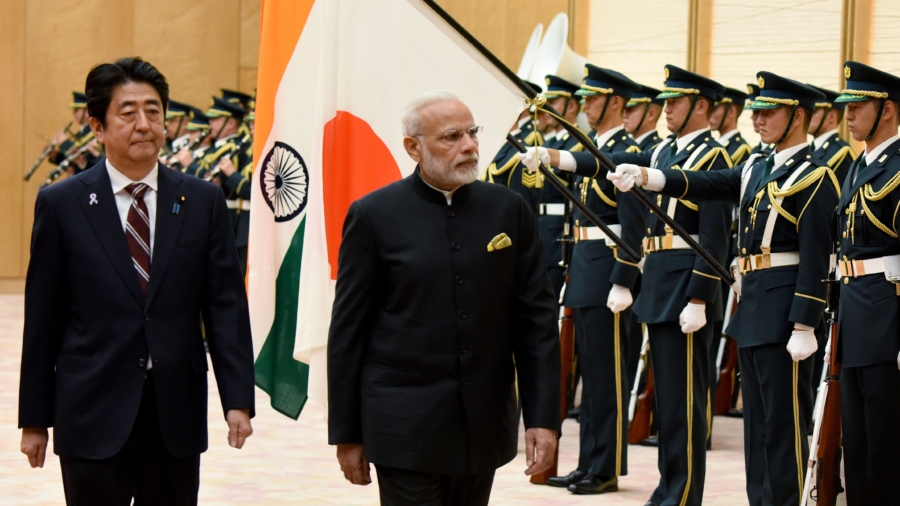Indian and Japanese leaders signed a nuclear energy accord on Nov. 11 in Tokyo, allowing Japanese firms to supply New Delhi with needed fuel, equipment, and technology. The agreement was signed a day after Indian prime minister Narendra Modi arrived in Japan for high-level talks with his Japanese counterpart Shinzo Abe.
It’s a somewhat controversial event, given Japan’s strong commitment to nuclear non-proliferation. India, which possesses nuclear weapons, is not a signatory of the nuclear Non-Proliferation Treaty.
The energy agreement comes with a separate document saying that the deals will be cancelled should India conduct tests of nuclear weaponry—a clause Abe said would “ensure that India acts responsibly for the peaceful use of nuclear energy.”
“It will also have India participate substantially in the international nonproliferation regime,” Abe said at a news conference. “This is exactly in line with Japan’s position in promoting nonproliferation, aiming to create a world without nuclear weapons.”
Indian-Japanese nuclear cooperation is a boon for Japanese industrial concerns, as the Fukushima nuclear disaster in 2011 practically ended domestic demand for new atomic plants. In India, however, economic growth has led to increasing power shortages. In 2008 India made a similar nuclear deal with the U.S. and now has 21 nuclear reactors. It plans to double that number in the next 15 years.
India has been seen as a rising counterweight to China, which has also embarked on an ambitious nuclear energy program and builds reactors for Pakistan, India’s nuclear-armed rival. Prime Minister Modi said the Japanese agreement would help stabilize the region.
“Our strategic partnership is not only for the good and security of our own societies. It also brings peace, stability and balance to the region. It is alive and responsive to emerging opportunities and challenges in Asia-Pacific,” he said.
Modi’s trip to Japan comes right after British Prime Minister Theresa May finished her own three-day visit to India to discuss infrastructure, investment, trade, and immigration.
(NTD Television)
Featured image: India’s Prime Minister Narendra Modi (R) and his Japanese counterpart Shinzo Abe review an honor guard before their meeting at Abe’s official residence in Tokyo on November 11, 2016. Credit: Toru Yamanaka/AFP/Getty Images)

